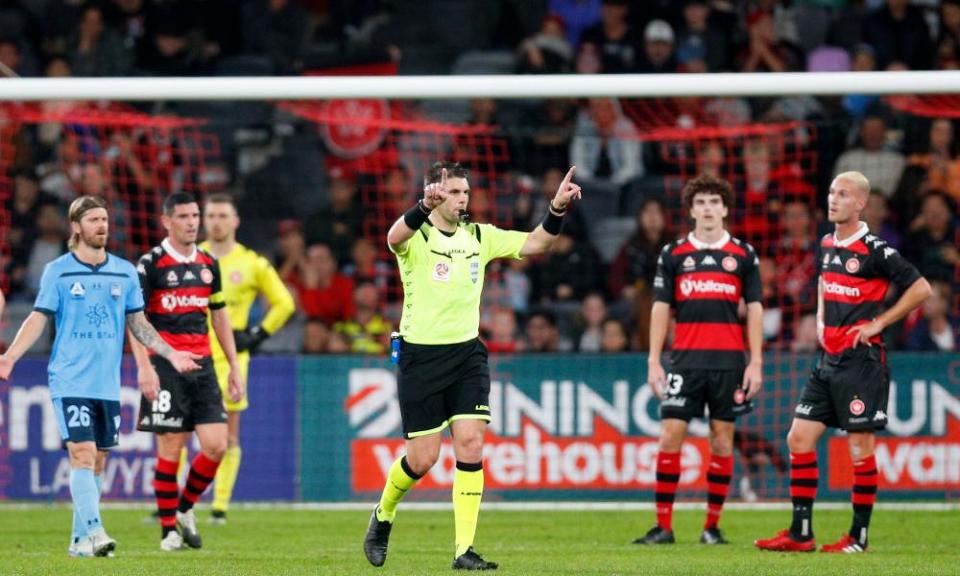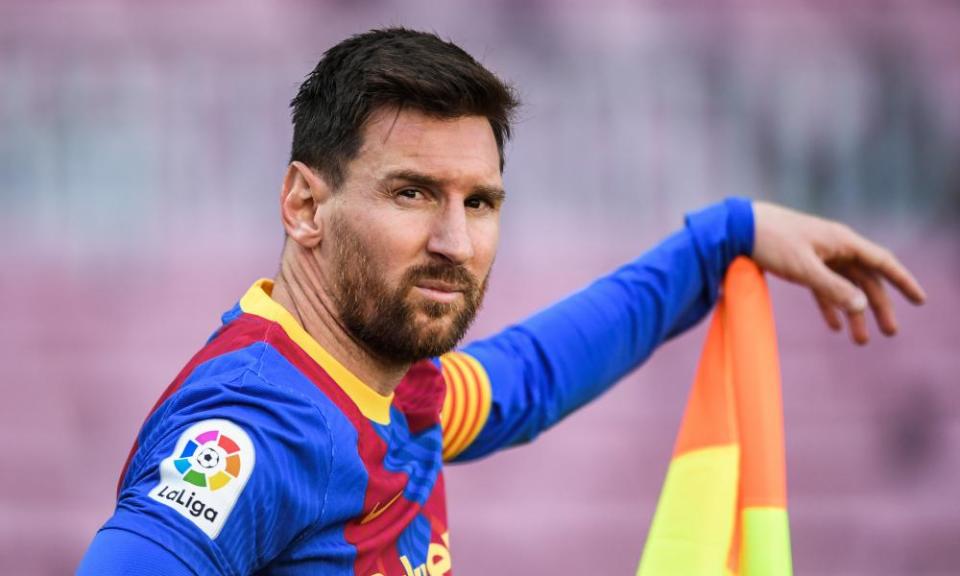Busy doing nothing: Mastering the art of masterly inactivity

“Doing nothing with a deal of skill,” that is how the 18th-century poet, William Cowper, expressed the concept of masterly inactivity. It is an idea commonplace in healthcare and parenting, where outcomes can be negatively affected by unnecessary interference. But doing nothing skilfully is more challenging than it sounds, especially if your name isn’t Lionel Messi.
Related: How to judge a footballer; a lesson in perception and cognitive bias | Jonathan Howcroft
In a recent podcast, economist Tim Harford used penalty-saving to explain masterly inactivity. A 2007 paper in the Journal of Economic Psychology identified that “given the probability distribution of kick direction, the optimal strategy for goalkeepers is to stay in the goal’s centre. Goalkeepers, however, almost always jump right or left.” Sometimes doing nothing is the hardest thing to do, especially when there is an expectation of activity.
It was a trap into which the Football Australia chief executive fell when he accepted an invitation to be hectored on Sydney talkback radio. The ambition was noble – to get out in front of a challenging topic and represent his constituents – and it carried symbolic weight, considering the inability of previous administrations to behave similarly. But the means to satisfy this ambition were ill-judged. It was the wrong platform, the wrong interrogator, and led to the wrong conversation – despite James Johnson’s considerable efforts.
That same week, A-League supporters were railing against the latest application of VAR when Western United’s Dylan Pierias was denied a goal that would have counted in most of the previous century and a half of organised football. This weekend, Sydney FC were victims of the overly officious application of a handball law that has mutated beyond recognition or usefulness.
VAR is an unnecessary intrusion into an uncomplicated game that has conquered the world through its simplicity. Decades of masterly inactivity from the game’s lawmakers have avoided the menace of unintended consequences. Now we have a sport that is no longer governed to satisfy the norms of its protagonists and instead compels players, referees, and supporters to bend to one singular view of the world – to nobody’s benefit.
There is mutual benefit in the decision to allow Newcastle’s Steven Ugarkovic and Western Sydney’s Jordan O’Doherty to swap clubs, but that doesn’t make it right either. Even if the details are all above board, the optics are dreadful because Western Sydney are part of a consortium responsible for the Jets’ A-League license while new ownership is sought. The move, occurring outside the two conventional transfer windows, offers an immediate upside for the finals-chasing Wanderers, trading out a player with just two starts this campaign for one of the most accomplished midfielders in the league.

All of this might lead to the assumption that doing nothing is a default best option, which, disappointingly, is not the case. Just look at the handling of disciplinary action against Adama Traoré for his outburst following his red card in the Melbourne derby.
The incident occurred on 17 April. A memo circulated two days later that the Match Review Panel had considered the episode, but it was a further 10 days before the resulting Independent Disciplinary and Ethics Committee hearing, the outcome of which was not immediately clear, because “The Committee has reserved their determination,” whatever that means.
On 7 May, three full weeks after the brouhaha, it was revealed Traoré had been hit with a five match ban – 80% of which had already been served. The official statement from FA contained the line that “The Player has the right to appeal the determination of the Committee to Football Australia’s independent Appeals Committee.” And do what? Turn back time so that he can appear in the four matches he already sat out while the interminable process took its course? The inactivity has to be masterly, otherwise it comes across as forgetful or indolent.
Related: David Squires on … how the Guardian website might have looked 200 years ago
Speaking of which, the next great leap in our appreciation of football will come through our understanding of what goes on off the ball, where it can be taken for granted that a player is inactive. “It is statistically proven that players actually have the ball three minutes on average,” Johan Cruyff said, “so, the most important thing is what do you do during those 87 minutes when you do not have the ball. That is what determines whether you’re a good player or not.”
Pioneering data analysts are beginning to produce models that colour in those huge gaps and it will surely be only a matter of time before the football community is conversant with a player’s impact when they are not in possession. For now, we have some rudimentary markers, like the distance a player runs, and how fast they travel in the process. And you know who consistently comes out the most idle in such analysis, dawdling around the field, engaging only sporadically? Lionel Messi, of course, the master of masterly inactivity.

 Yahoo Finance
Yahoo Finance 